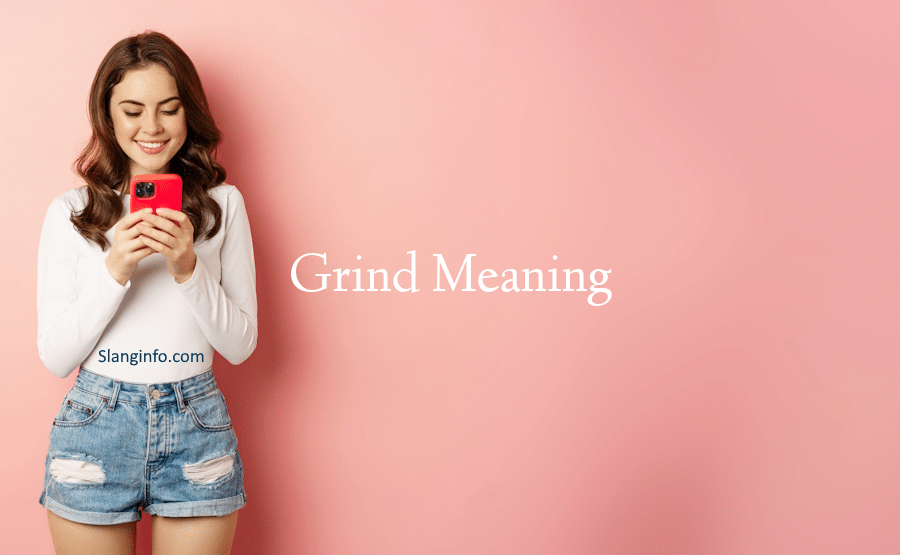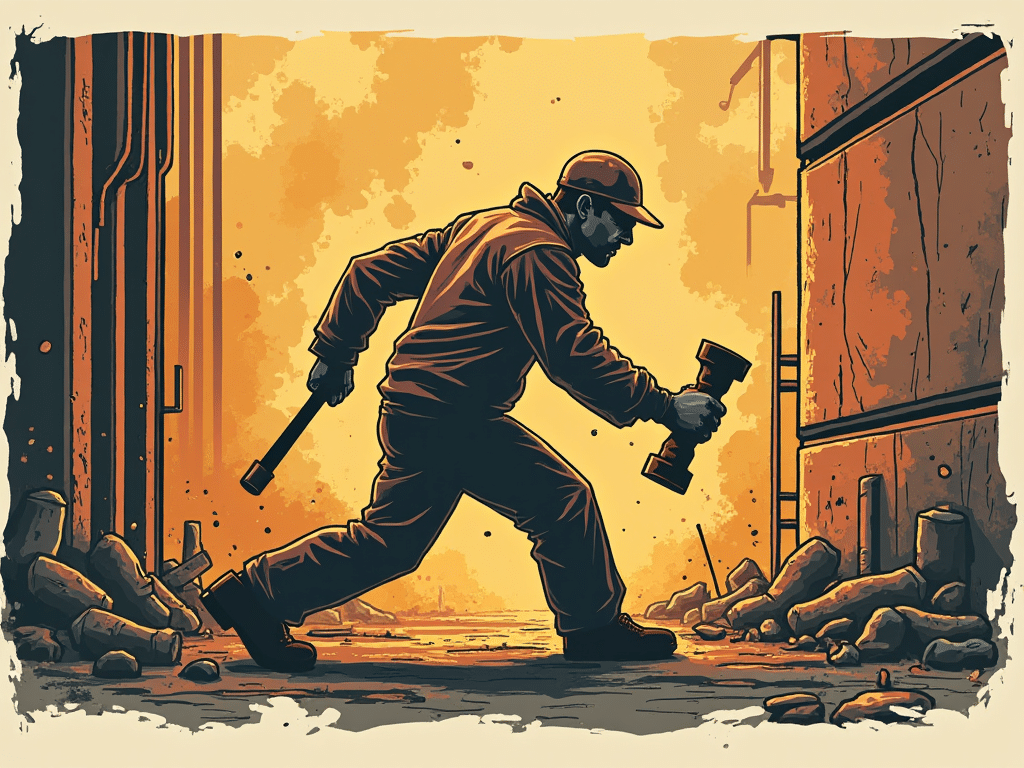The word grind is often used to describe hard work and perseverance, whether in school, at work, or even in video games. It’s about putting in the effort, sometimes repetitively, to achieve a goal. But what does it mean to be on the grind, and how has this concept shaped our culture?
Key Takeaways
| Aspect | Description |
|---|---|
| Definition | Grind refers to hard work, often repetitive, aimed at achieving a goal. |
| Origins | Comes from Old English and Germanic roots, originally meaning “to crush.” |
| Modern Usage | Used in contexts like work, gaming, and daily life to signify effort. |
| Cultural Impact | Influences perceptions of success and productivity. |

Definition and Etymology
Grind can mean different things depending on the context. Literally, it refers to crushing or reducing something into smaller pieces. Metaphorically, it’s about consistent effort over time. The term comes from Old English grindan and has Germanic roots, originally meaning “to crush” or “to rub together.”
Grind Culture
Overview of Grind Culture
Grind culture is all about embracing hard work and persistence. It’s the mindset that constant effort is necessary for success. This culture is prevalent in many areas of life today, from academics to professional environments.
Comparison with Hustle Culture
While both grind and hustle cultures emphasize hard work, there are differences. Grind culture often focuses on the repetitive nature of tasks—think of studying for hours or practicing a skill until it’s perfect. In contrast, hustle culture can include networking and finding innovative ways to reach goals.
Impact on Society
Grind culture has a significant impact on how we view success. It promotes the idea that dedication and perseverance are key to achieving goals. However, it can also lead to burnout if not balanced with rest and relaxation.
Modern Interpretations of Grinding

Grinding in Video Games
In gaming, grinding refers to performing repetitive tasks to gain experience points or resources. This can be both rewarding and tedious, as it requires patience and persistence. Players often grind to level up their characters or unlock special items.
Workplace Grinding
In professional settings, grinding might mean putting in long hours to complete projects or meet deadlines. While this can lead to career advancement, it’s important to manage stress levels and maintain a healthy work-life balance.
For more insights into how language evolves with cultural trends, check out our articles on New York Slang or Gen Z Slang.
The Evolution of Grind
The concept of grinding has transformed over time, adapting to various contexts and cultural shifts. Here’s how it has evolved:
Historical Context
Originally, grinding referred to the physical act of crushing materials. This literal meaning has transitioned into a metaphor for hard work and perseverance, symbolizing the effort needed to achieve goals.
Workplace Grinding
In today’s workplace, grinding is synonymous with long hours and relentless dedication to career advancement. It’s about putting in the effort to climb the corporate ladder, often at the expense of personal time and well-being.
Gaming Culture
In the gaming world, grinding involves repetitive tasks aimed at leveling up characters or acquiring resources. This reflects a culture of persistence and patience, where players are rewarded for their dedication.
Social Media Influence
With platforms like Instagram and LinkedIn, grinding has become a popular term to showcase hustle and achievements. People often share their daily grinds as a way to inspire others and build their personal brand.
Future Implications of Grind Culture
As grind culture continues to permeate various aspects of life, it brings both challenges and opportunities:
- Risk of Burnout: The constant pressure to perform can lead to increased burnout among individuals who feel they must always be productive.
- Work-Life Balance: Companies may begin implementing policies that promote work-life balance to mitigate the negative effects of grind culture.
- Shift Towards Smart Work: There may be a growing emphasis on smart work rather than hard work, focusing on efficiency and productivity rather than sheer hours.
- Generational Pushback: Younger generations might advocate for more flexibility and mental health awareness in the workplace, challenging traditional grind culture norms.
Conclusion
Grinding is more than just a term; it’s a reflection of our society’s values around work and achievement. While it can be a powerful motivator, it’s important to balance it with well-being and sustainability. As we move forward, embracing smart work strategies and prioritizing mental health will be key to thriving in an ever-evolving landscape.
For those interested in exploring more about cultural shifts and language evolution, check out our articles on Australian Slang and Irish Slang.
In this article, we’ve delved into the multifaceted meaning of grind, from its historical roots to its modern-day interpretations. Whether you’re grinding in school, at work, or in your favorite video game, understanding this culture can provide valuable insights into achieving your goals while maintaining a healthy balance.







